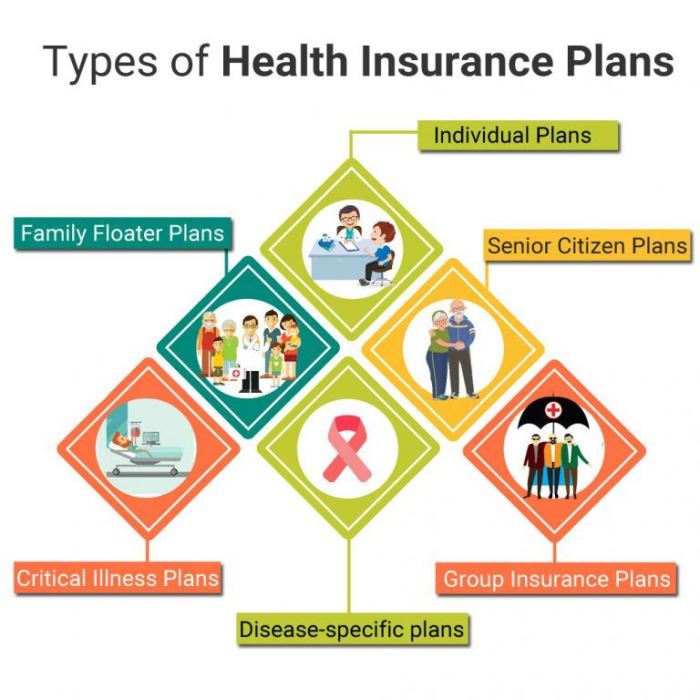Delving into the realm of Affordable Private Health Insurance Plans for Startups in 2025, this piece sets the stage for an enlightening exploration of the topic. Brace yourself for an insightful journey filled with valuable insights and trends that will shape the future of healthcare for startups.
Introduction
Affordable private health insurance plans for startups in 2025 refer to insurance options tailored to the specific needs and budgets of newly established businesses. These plans aim to provide comprehensive coverage at a reasonable cost, allowing startups to prioritize the well-being of their employees without breaking the bank.Startups face unique challenges when it comes to offering health insurance to their employees.
The financial constraints and uncertainties associated with launching a new venture can make traditional insurance plans unaffordable. Affordable private health insurance plans in 2025 play a crucial role in ensuring that startups can attract and retain top talent by providing access to quality healthcare benefits.
Current Landscape of Private Health Insurance for Startups
In the current landscape, startups often struggle to find affordable health insurance options that meet the needs of their employees. Traditional group health insurance plans can be costly and may not provide the flexibility required by startups with fluctuating team sizes.
As a result, many startups are turning to alternative solutions such as health reimbursement arrangements (HRAs) or individual coverage health reimbursement arrangements (ICHRAs) to provide employees with healthcare benefits.With the increasing focus on employee well-being and the competitive nature of the startup ecosystem, the demand for affordable private health insurance plans tailored to the needs of startups is on the rise.
Insurers and healthcare providers are adapting to this trend by offering innovative and cost-effective solutions that cater to the unique requirements of startup businesses.
Trends in Health Insurance for Startups

In recent years, there has been a significant shift in the landscape of health insurance plans tailored specifically for startups. These emerging trends reflect the unique needs and challenges faced by new businesses in providing affordable and comprehensive healthcare coverage for their employees.
Comparison of Traditional vs. Startup Health Insurance Plans
- Traditional health insurance plans typically have higher premiums and more rigid coverage options compared to startup health insurance plans. Startups often offer more flexible plans that can be customized to meet the specific needs of their employees.
- Startup health insurance plans may include innovative perks such as telemedicine services, wellness programs, and mental health support, which are tailored to the younger and more tech-savvy workforce commonly found in startups.
- Traditional plans may have stricter eligibility requirements and benefit structures, while startup plans are designed to be more inclusive and accessible to a diverse range of employees, including part-time and contract workers.
Influence of the Evolving Healthcare Landscape
Startup health insurance plans are continuously adapting to the changing healthcare landscape to provide more value and support to employees. Factors such as rising healthcare costs, advancements in technology, and shifting employee expectations have influenced the development of these plans.
- With the rise of virtual healthcare and digital health solutions, startups are incorporating telemedicine services and online wellness programs into their insurance offerings to provide convenient and cost-effective care to employees.
- The focus on mental health and well-being has also become a priority in startup health insurance plans, with increased coverage for therapy sessions, mindfulness apps, and other mental health resources to support employee wellness.
- Startups are leveraging data analytics and predictive modeling to better understand employee healthcare needs and tailor their insurance plans to provide proactive and personalized care, ultimately leading to improved health outcomes and cost savings.
Factors Influencing Affordable Plans
When it comes to making health insurance plans affordable for startups, several key factors come into play. These factors can significantly impact the cost-effectiveness of insurance solutions tailored for small businesses.
Role of Technology and Data Analytics
Technology and data analytics have revolutionized the way health insurance plans are designed and managed. By leveraging advanced technologies and data-driven insights, insurers can identify trends, predict risks, and optimize coverage to reduce costs. For startups, this means access to more personalized and cost-effective insurance solutions that cater to their specific needs and budget constraints.
Impact of Regulatory Changes
Regulatory changes can have a profound impact on the affordability of private health insurance plans for startups. Changes in legislation, mandates, and compliance requirements can influence the pricing and availability of insurance products. Startups need to stay informed about these regulatory developments to navigate the insurance market effectively and ensure they are compliant with the latest requirements.
By understanding and adapting to regulatory changes, startups can better position themselves to access affordable health insurance plans that meet their needs.
Customization and Flexibility
Customization and flexibility play a crucial role in health insurance plans for startups, as they allow companies to tailor their benefits to meet the specific needs of their employees. This level of personalization not only ensures that employees receive the coverage they require but also helps in creating a more attractive benefits package that can set a startup apart in a competitive job market.
Innovative Approaches to Tailor Insurance Plans
- Offering a range of deductible options: Startups can provide employees with different deductible levels to choose from based on their individual healthcare needs and financial situations.
- Flexible spending accounts (FSAs) or health savings accounts (HSAs): These accounts allow employees to set aside pre-tax dollars for medical expenses, giving them more control over their healthcare spending.
- Telemedicine services: Providing access to virtual healthcare consultations can give employees more convenient and affordable options for seeking medical advice and treatment.
Benefits of Customizable Plans for Startups
- Attraction and retention of top talent: By offering customizable health insurance plans, startups can appeal to a diverse workforce with varying healthcare needs, helping them attract and retain top talent in a competitive market.
- Cost-effectiveness: Customizable plans can be more cost-effective for both the employer and the employees, as they only pay for the coverage they need, reducing unnecessary expenses.
- Employee satisfaction and morale: When employees have the freedom to choose their healthcare benefits, they are more likely to feel valued and satisfied with their overall compensation package, leading to higher morale and productivity.
Benefits of Affordable Health Insurance
Affordable private health insurance plans can offer numerous benefits to startups, not only in terms of financial savings but also in terms of employee well-being and productivity.
Enhanced Employee Well-being and Productivity
Access to quality healthcare coverage through affordable insurance plans can significantly enhance employee well-being. When employees have the peace of mind knowing that they can afford medical care when needed, they are likely to be more focused and productive at work.
This, in turn, can lead to higher employee satisfaction and retention rates within the startup.
Long-term Investment in Employee Health
- By investing in affordable health insurance for their employees, startups are essentially investing in the long-term health and well-being of their workforce.
- Healthy employees are more likely to be present at work, reducing absenteeism and increasing overall productivity.
- Preventive care covered by insurance plans can help employees detect and address health issues early, preventing more serious and costly health problems down the line.
Challenges and Solutions
Accessing affordable private health insurance can be a significant challenge for startups, especially those with limited financial resources. These challenges can hinder the ability of startups to attract and retain top talent, as well as ensure the health and well-being of their employees.
However, there are strategies and solutions that can help overcome these obstacles and make health insurance plans more accessible for startups.
Common Challenges
Startups often face several common challenges when trying to access affordable private health insurance:
- Limited bargaining power due to small employee size
- Higher premiums and deductibles compared to larger companies
- Lack of awareness about available options and cost-saving measures
- Complexity in navigating the insurance market and understanding different plan structures
Solutions and Strategies
There are several solutions and strategies that startups can employ to overcome these challenges:
- Pooling resources with other startups through industry associations or group purchasing alliances to increase bargaining power and negotiate better rates
- Exploring alternative insurance models such as health reimbursement arrangements (HRAs) or health savings accounts (HSAs) to provide more flexibility and cost control
- Engaging with insurance brokers or consultants who specialize in working with startups to identify tailored solutions and cost-effective plans
- Utilizing technology platforms that streamline the insurance selection process and provide transparency on pricing and coverage options
Role of Stakeholders
Insurance providers, brokers, and startups all play a crucial role in addressing these challenges:
- Insurance providers can create specialized products and services tailored to the needs of startups, offering more affordable and flexible options
- Brokers can act as advocates for startups, helping them navigate the complex insurance landscape and find the best solutions for their specific requirements
- Startups can proactively educate themselves on available insurance options, engage with industry experts, and prioritize employee health and well-being in their business strategy
Final Thoughts

In conclusion, the landscape of private health insurance for startups in 2025 is evolving rapidly, presenting both challenges and opportunities. By understanding the key factors influencing affordability, embracing customization, and leveraging the benefits of quality healthcare coverage, startups can navigate this terrain successfully.
This guide serves as a roadmap for startups looking to secure cost-effective and tailored insurance solutions to support their employees’ well-being and drive productivity.
Common Queries
What are the key factors contributing to affordable health insurance plans for startups?
The key factors include leveraging technology, data analytics, and adapting to regulatory changes to design cost-effective solutions tailored for startups.
How can customizable plans help startups attract and retain top talent?
Customizable plans allow startups to offer benefits that cater to the specific needs of employees, enhancing their job satisfaction and loyalty to the company.
What are the long-term advantages of investing in employee health through insurance plans?
Investing in employee health through insurance plans can lead to improved well-being, increased productivity, and reduced absenteeism, benefiting the overall success of the startup.



